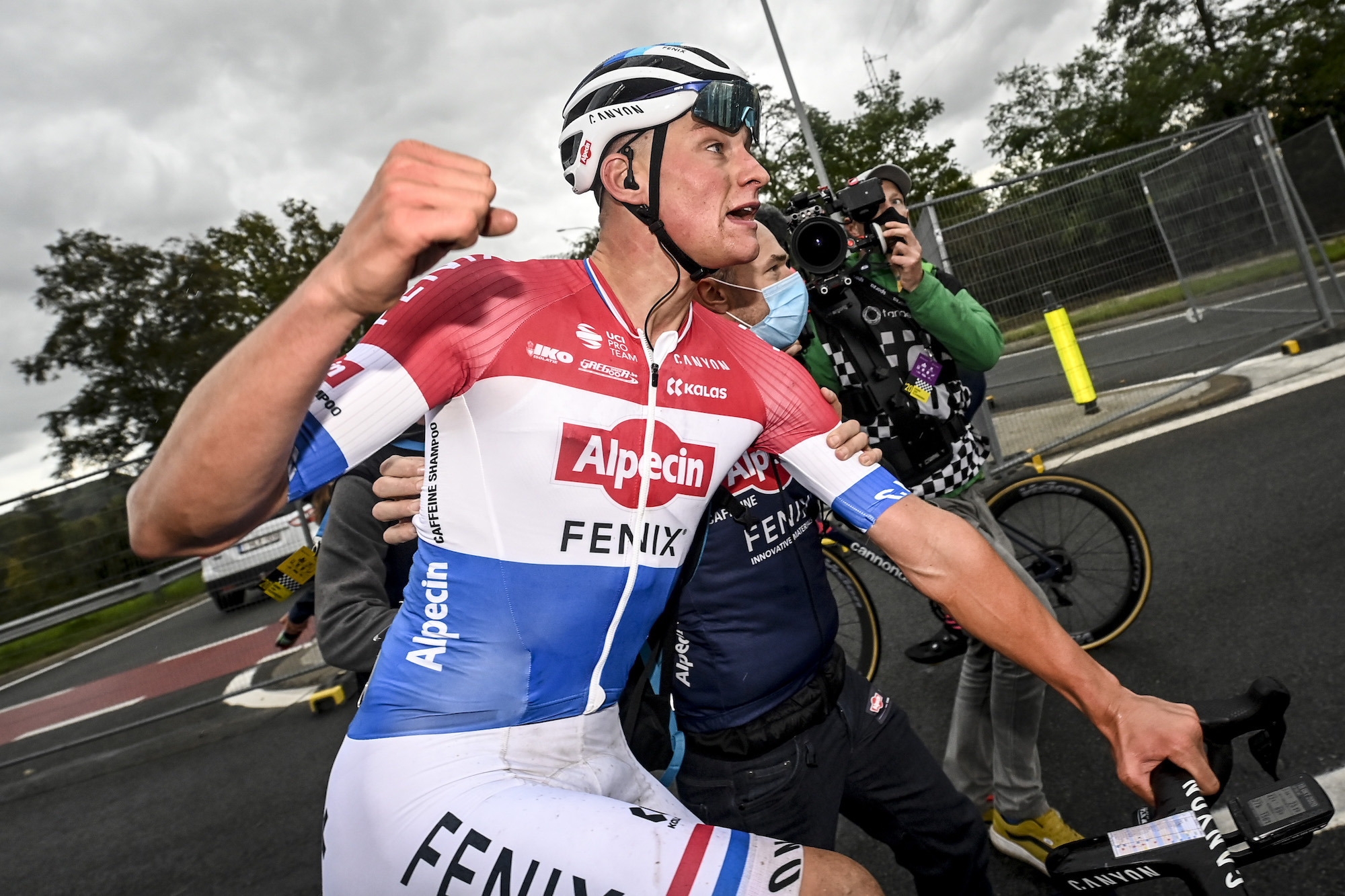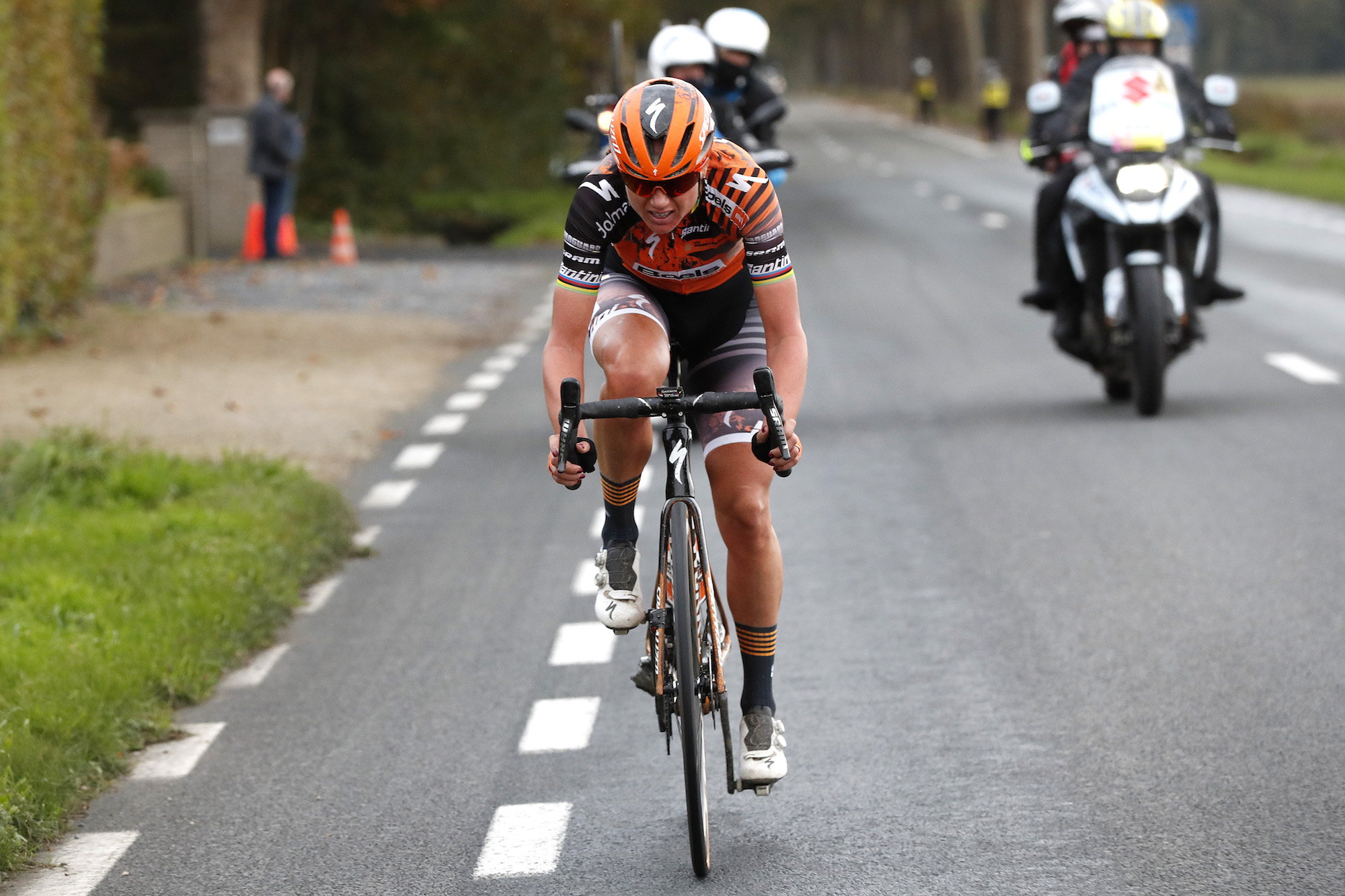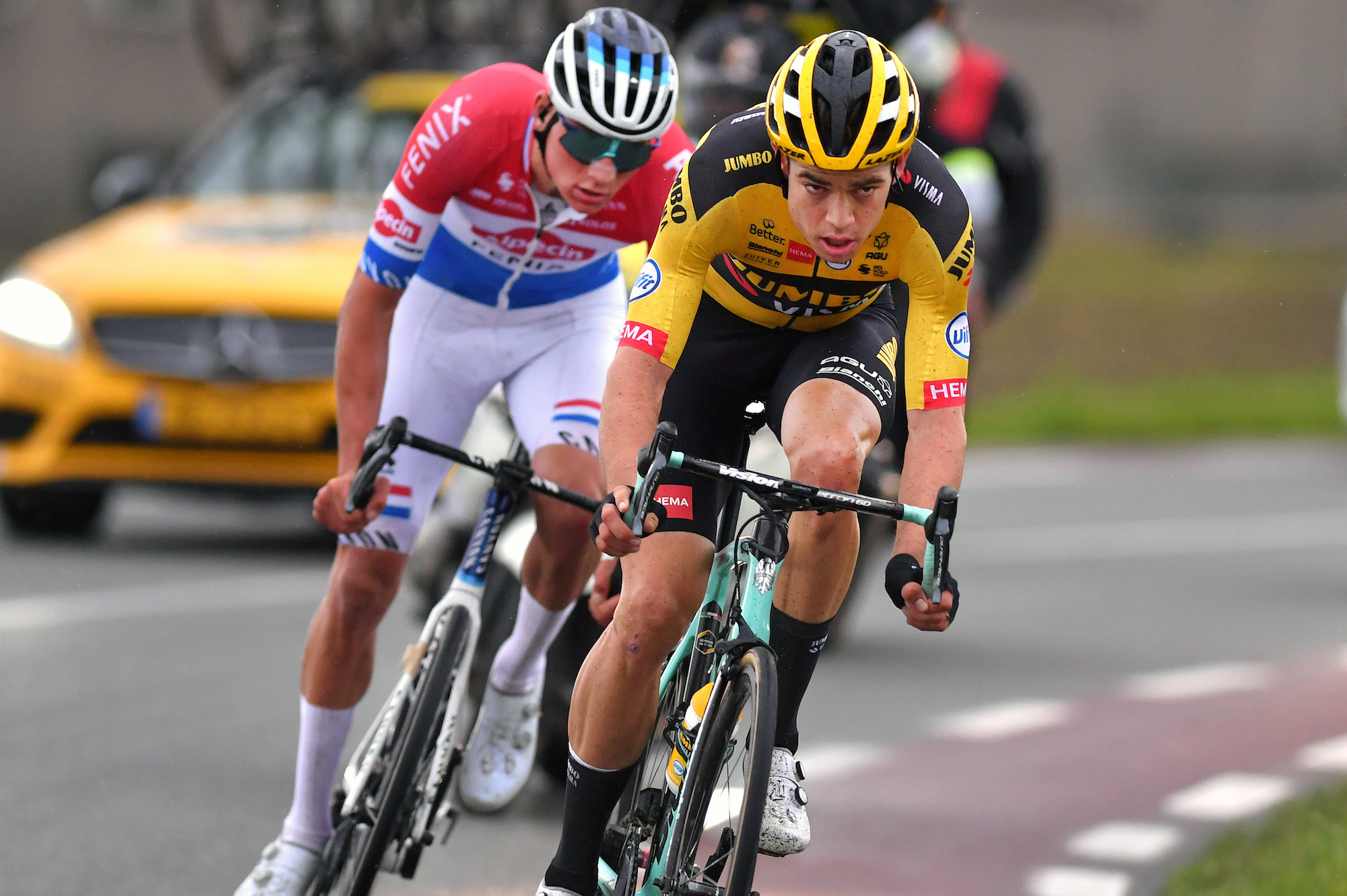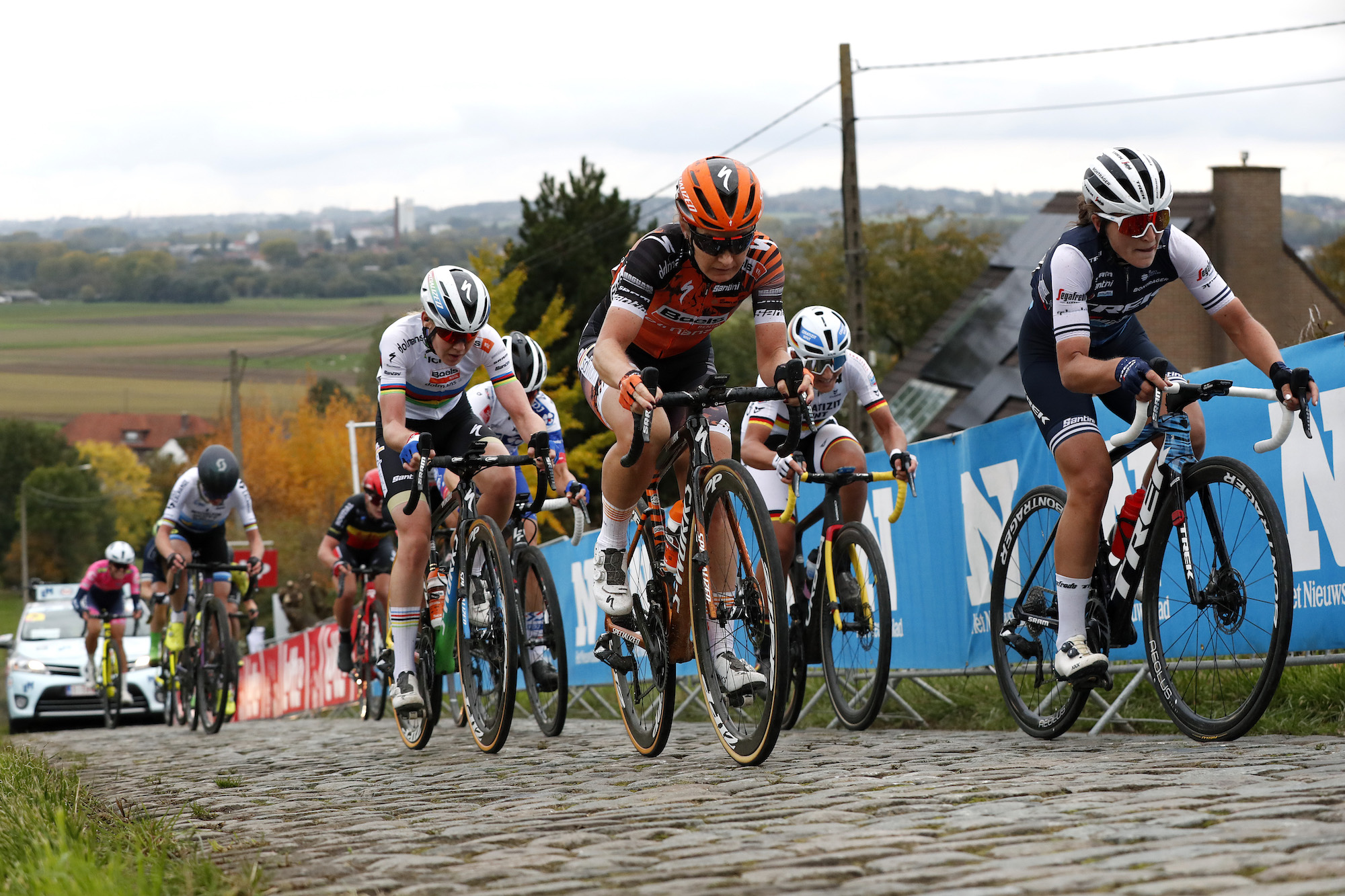Five talking points from the Tour of Flanders 2020
Two Dutch winners on Belgian roads
The latest race content, interviews, features, reviews and expert buying guides, direct to your inbox!
You are now subscribed
Your newsletter sign-up was successful
Triumphant Mathieu van der Poel follows in his father’s footsteps

In a thrilling Tour of Flanders that developed into a showdown between the two cyclocross stars and young prodigies of Classics racing, Mathieu van der Poel (Alpecin-Fenix) overcame his familiar rival Wout van Aert (Jumbo-Visma) to claim a stunning victory.
Riding only in his second Ronde, Van der Poel may not have much personal experience of this race but must have learnt a thing or two over the years from his father Adri van der Poel, who won the race back in 1986.
Van der Poel has been widely tipped to follow in his father’s footsteps since bursting onto the road scene last season with a string of jaw-dropping performances but hadn’t quite reached those heights this season — that is, until today.
The lack of crowds (brought about by Covid-19 measures) made for a strangely subdued spectacle, but Van der Poel’s celebration at the finish made clear just how much the victory meant. The two-man sprint between himself and van Aert was so close that he didn’t initially realise that he’d won, but once confirmed the Dutchman was ecstatic, breaking down with emotion, his hands held over his face.
As his first Monument victory, this is the greatest moment so far in Van der Poel’s career on the road — but more is sure to come in the future from this special talent.
Chantal van den Broek-Blaak at last wins the Ronde
The latest race content, interviews, features, reviews and expert buying guides, direct to your inbox!

Having twice before made the podium, as well as the top ten on another four occasions, Chantal van den Broek-Blaak, at last, won the race that has eluded her for so long.
The Boels-Dolmans rider broke clear from a small group of favourites on the Oude Kwaremont and was not to be seen again by the others until the finish.
Although she certainly benefited from great teamwork from Boels-Dolmans, whose numerical advantage in the group of favourites helped disrupt the chase behind, that would have counted for nothing were it not for Van den Broek-Blaak’s powerful solo ride.
The win is her first-ever Monument, and another triumph in what had already been a fruitful season following her pre-lockdown victory at Omloop Het Nieuwsblad.
Having announced her plan to retire at the end of next season, the Dutchwoman will be delighted to have achieved this long hoped for result before it was too late.
Van der Poel and Van Aert are almost inseparable

Billed as a duel between the two great cyclocross champions, the men’s Tour of Flanders did not disappoint.
After Julian Alaphilippe (Deceuninck-QuickStep) dramatically crashed 35km from the finish (more on that later), and with the rest of the field already adrift and slipping further away, the pair were left alone to duke it out for victory.
Despite the minor fall-out between the two in the aftermath of Gent-Wevelgem, when Van Aert accused his rival of prioritising preventing him from winning rather than winning himself, the two rode well together, and once the gap between them and the chasers exceeded one minute as they approached the final climb of the Oude Kwaremont, it was clear that victory would fall to one of them.
The situation was reminiscent of past great rivalries of the last decade, such as Tom Boonen v Fabian Cancellara, and Fabian Cancellara v Peter Sagan. But whereas in those cases Cancellara managed to drop the other over the race’s final climb (Sagan in 2013 and Boonen in 2010), this time even the extremely steep slopes at the top of the Paterberg was not enough to be decisive, with the pair remaining together with nothing apparently between them.
Instead, this was a rare instance where a lone leader had not been established by the finishing straight, and a sprint was needed to determine the winner. And even then, they were virtually inseparable, with van der Poel only defeating him by a fraction of a wheel-length. If the finish line were just a few meters further away instead it would be the Belgian celebrating a first-ever Ronde victory.
With the two riders dramatically slowing-down to almost a track stand, and each launching their sprint at almost the same moment, it was a fittingly thrilling ending to what was a vintage Tour of Flanders, and another instalment in what is the most intriguing rivalry in the peloton at the moment.
Alaphilippe attracts headlines again with dramatic crash

He’s only been world champion for three weeks, but already Julian Alaphilippe’s tenure in the rainbow jersey has been one of the most incident-packed in recent years.
Having lost Liège-Bastogne-Liège with a premature celebration on his first racing day in the rainbow stripes, and winning Brabantse Pijl on his second, Alaphilippe once again stole the headlines after he painfully crashed 35km from the finish while in a position to potentially win the race.
Alaphilippe had already been the day’s main instigator, accelerating first on the Koppenberg and then again on Steenbeekdries, where only van der Poel and Van Aert managed to follow, forming the decisive selection despite there still being almost 40km still to ride.
But a mere matter of minutes later, his race was over. The cobblestones had expected to be a difficulty for Alaphilippe, who had no experience of riding the Flemish Classics, and indeed he did look uncomfortable while riding in the gutter up the Paterberg for the first time. However, the race-ending crash actually occurred on a tarmac section, when the Frenchman did not notice in time a moto slow down in front of him and collided into it head-first.
The world champion was in audible pain on the road, crying out while clutching his shoulder. It was a bitter end to what has been a rollercoaster year for Alaphilippe and a sorry sight for fans of his exhilarating racing.
A tactical masterclass from Boels-Dolmans

For a moment, at 25km to go, it appeared as though the women’s race was set to follow the same pattern as the men’s, with the two clear pre-race favourites, Anna van der Breggen (Boels-Dolmans) and Annemiek van Vleuten (Mitchelton-Scott) riding away from the rest of the field to contest for victory.
However, once van der Breggen bridged up to her compatriot, who had attacked a couple of kilometres shortly after summiting the Kruisberg, she made the intriguing tactical decision not to ride with Van Vleuten. It was a clear indication that Boels Dolmans were going to ride a tactical race making use of their multiple assets, rather than depend on Van der Breggen getting the better of Van Vleuten.
The strategy paid off handsomely. With Van der Breggen marking everything Van Vleuten did, and quick finisher Amy Pieters also remaining in the group of favourites, Chantal van den Broek-Blaak was able to make an attack on the Oude Kwaremont knowing her teammates would disrupt the chase behind.
Van der Breggen and Pieters did indeed police the chasing group expertly, always managing to mark the many attacks made from it from the likes of Van Vleuten and her team-mate Grace Brown. Blaak’s gap got bigger and bigger and Pieters even managed to win the sprint for second to pull off a brilliant one-two for the team.
Improved competition from the rest of the peloton has prevented Boels-Dolmans from dominating to the extent that they did a few years ago, but this was a return to the team’s very best.
Stephen Puddicombe is a freelance journalist for Cycling Weekly, who regularly contributes to our World Tour racing coverage with race reports, news stories, interviews and features. Outside of cycling, he also enjoys writing about film and TV - but you won't find much of that content embedded into his CW articles.